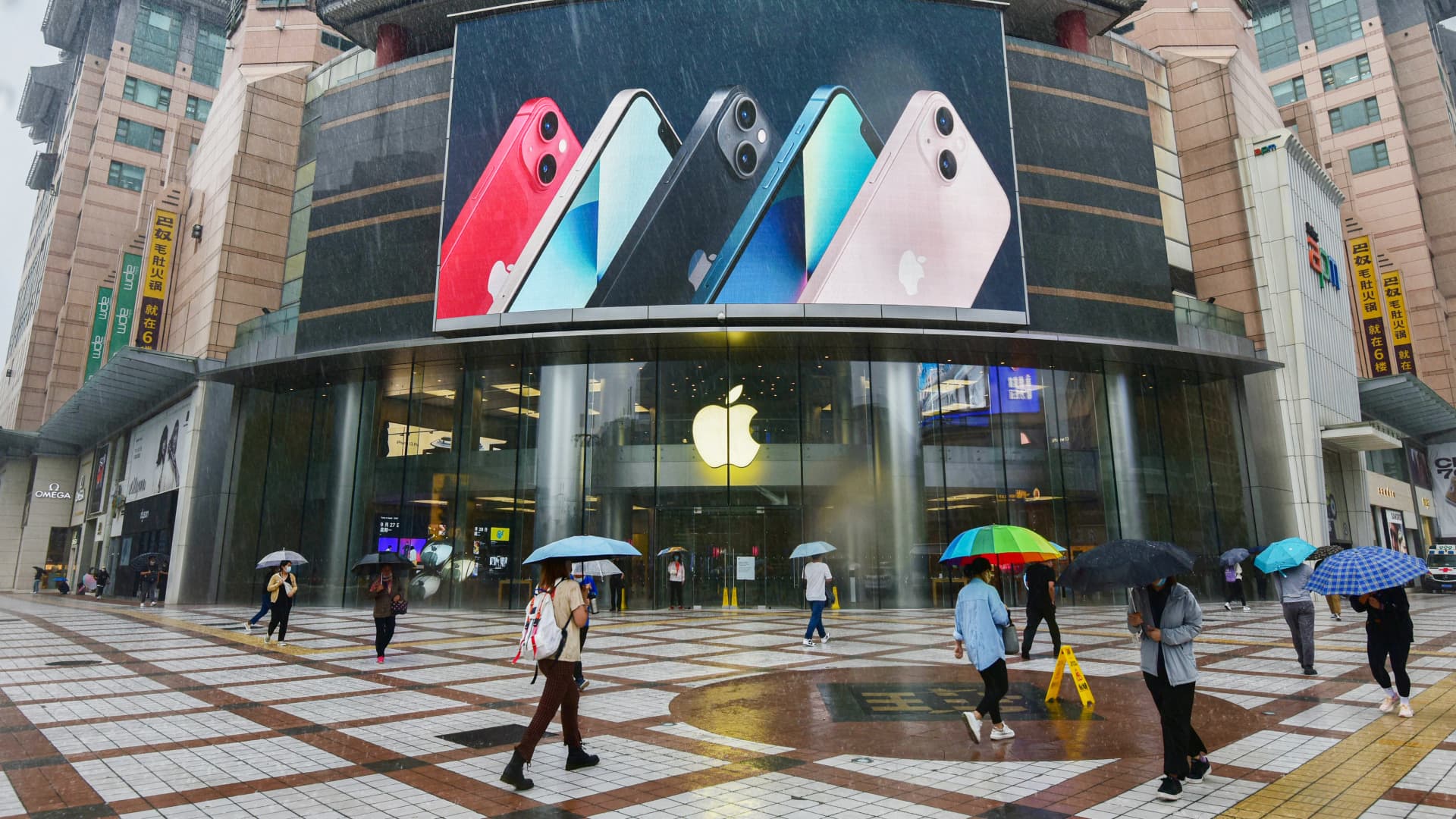People walk past an apple store in Wangfujing with iPhone 13 series advertisement on a big screen.
Sheldon Cooper | LightRocket | Getty Images
This report is from today’s CNBC Daily Open, our new, international markets newsletter. CNBC Daily Open brings investors up to speed on everything they need to know, no matter where they are. Like what you see? You can subscribe here.
What you need to know today
Goldman’s watching IPOs closely
Capital markets could rebound in the next few months “if Arm and some of these other IPOs go well,” Goldman Sachs CEO David Solomon told CNBC’s David Faber. Aside from Arm, grocery delivery company Instacart has filed to go public. Goldman has seen a dearth of activity in the past year because of high interest rates, so a resurgence in deals and mergers would be welcome news for Solomon.
FTX’s Salame pleads guilty
Former FTX executive Ryan Salame pleaded guilty to campaign finance and money-transmitting crimes. Salame admitted that he made political contributions in his own name when the money came from Alameda Research. The donations were meant ‘to weed out anti crypto dems for pro crypto dems and anti crypto repubs for pro crypto repubs,” Salame said in a private message, according to a court document.
A different G20 in a changed world
U.S. President Joe Biden is on his way to India to attend the Group of 20 summit. The G20 represents 85% of global gross domestic product, 75% of international trade and two-thirds of the world’s population. But Chinese President Xi Jinping and Russian President Vladimir Putin won’t be there. It’s the first time a Chinese president has missed the summit, a sign of how geopolitics have shifted.
[PRO] No high for a long time
Traders are optimistic the S&P 500 will be able to break its all-time high of 4,796.56 because of moderating inflation and growth spurred by artificial intelligence. But Leon Cooperman, the chair and CEO of the Omega Family Office, told CNBC he doesn’t think markets will hit a new high for a long time. Here’s why.
The bottom line
Initial jobless claims fell last week to a seasonally adjusted 216,000, according to a report by the U.S. Labor Department. That figure’s lower than the 230,000 estimate and 13,000 less than the previous period. Separately, unit labor costs, a measure of hourly compensation minus productivity, rose 2.2% in the second quarter, higher than the 1.9% estimate.
In other words, the labor market still looks tight because employers are laying off fewer people and paying them more. In turn, traders increased their bet that the Federal Reserve will hike interest rates at their November meeting. There’s now a 47.5% chance rates will go up 25 basis points then, according to the CME FedWatch tool. It was 37.1% just a week ago.
Technology stocks were hit by a double whammy of Thursday’s economic data, and a report that China’s allegedly banning government workers from using iPhones at work — and is looking to broaden that ban to other state companies and government-backed agencies.
Apple fell 2.92%, following its 4% decline the previous session. That’s a drop of about $200 billion in two days. Stocks like Nvidia, Advanced Micro Devices and Seagate slipped as well.
Those moves weighed on the tech-heavy Nasdaq Composite, which retreated 0.89% for its fourth day of decline. The S&P 500 shed 0.32%. But the Dow Jones Industrial Average managed to edge up 0.17%, boosted by Intel’s 3.24% surge and UnitedHealth’s 1.65% gain.
“August was a difficult month, with weak data, and September may be the same,” said Brad McMillan, chief investment officer at Commonwealth Financial Network.
And even though markets may be in a “good news is bad news” frame of mind for now, McMillan reminds us that positive economic data is, fundamentally, something to cheer about. “Beyond that, though, the prospects remain good. Any recession is likely some time away, which should keep markets healthy.”
— CNBC’s Jeff Cox contributed to this report

